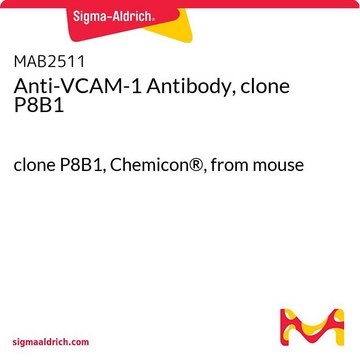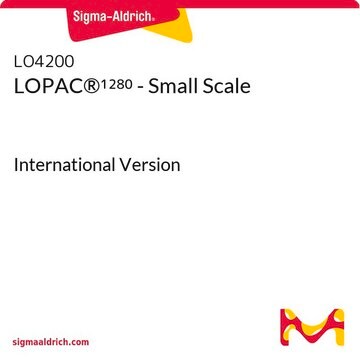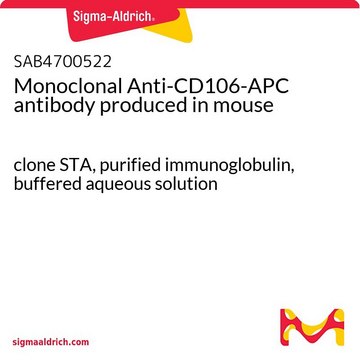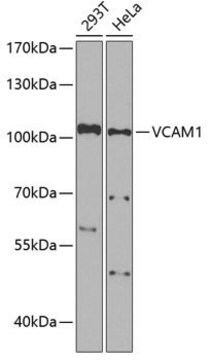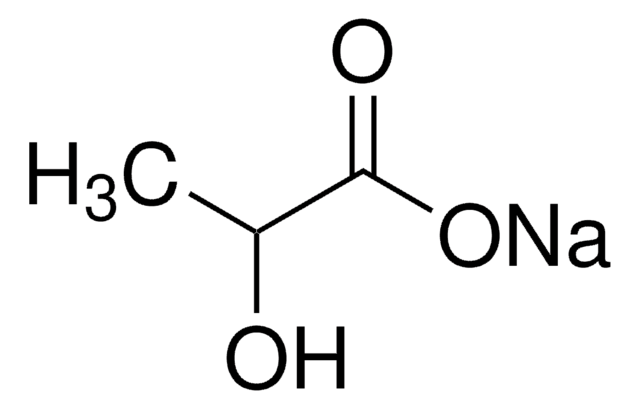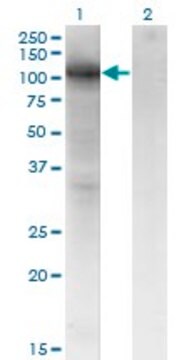V9263
Monoclonal Anti-Vascular Cell Adhesion Molecule 1 antibody produced in mouse
~1 mg/mL, clone 1.4C3, purified immunoglobulin, buffered aqueous solution
Sinónimos:
Anti-VCAM-1
About This Item
Productos recomendados
biological source
mouse
Quality Level
conjugate
unconjugated
antibody form
purified immunoglobulin
antibody product type
primary antibodies
clone
1.4C3, monoclonal
form
buffered aqueous solution
mol wt
antigen 110 kDa
species reactivity
human
concentration
~1 mg/mL
technique(s)
immunohistochemistry (formalin-fixed, paraffin-embedded sections): 2-4 μg/mL using human tonsil tissue
immunohistochemistry (frozen sections): 2-4 μg/mL using human tonsil tissue
western blot: suitable
isotype
IgG1
UniProt accession no.
shipped in
wet ice
storage temp.
−20°C
target post-translational modification
unmodified
Gene Information
human ... VCAM1(7412)
General description
Immunogen
Application
Physical form
Disclaimer
¿No encuentra el producto adecuado?
Pruebe nuestro Herramienta de selección de productos.
Optional
Storage Class
12 - Non Combustible Liquids
wgk_germany
WGK 2
flash_point_f
Not applicable
flash_point_c
Not applicable
Certificados de análisis (COA)
Busque Certificados de análisis (COA) introduciendo el número de lote del producto. Los números de lote se encuentran en la etiqueta del producto después de las palabras «Lot» o «Batch»
¿Ya tiene este producto?
Encuentre la documentación para los productos que ha comprado recientemente en la Biblioteca de documentos.
Artículos
Cell based angiogenesis assays to analyze new blood vessel formation for applications of cancer research, tissue regeneration and vascular biology.
Nuestro equipo de científicos tiene experiencia en todas las áreas de investigación: Ciencias de la vida, Ciencia de los materiales, Síntesis química, Cromatografía, Analítica y muchas otras.
Póngase en contacto con el Servicio técnico